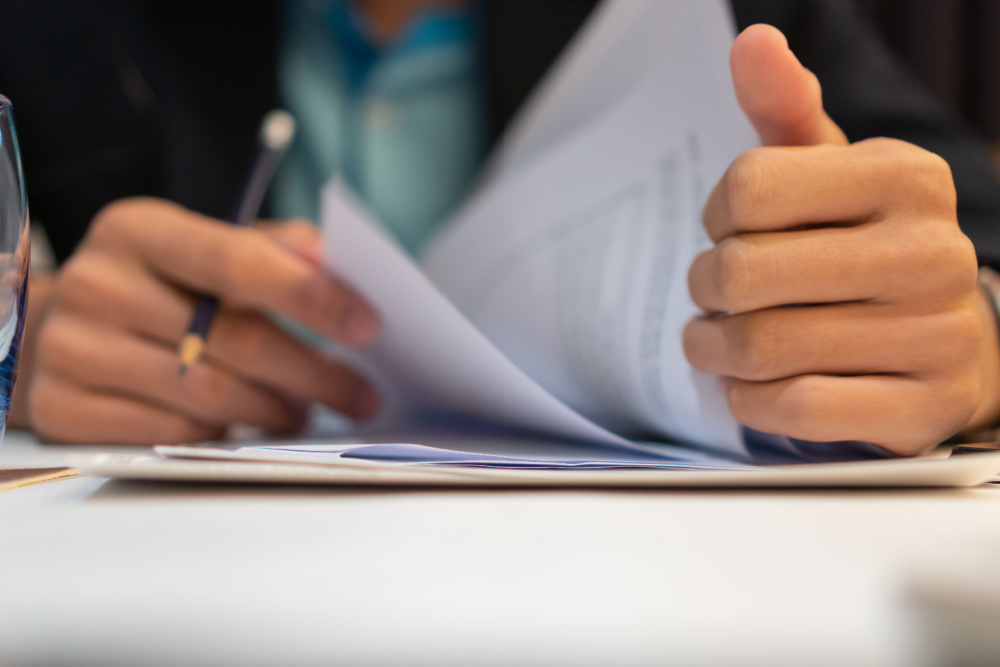
In the intricate tapestry of legal proceedings, the art of taking effective court notes stands as a pivotal skill intricately woven into the fabric of judicial success. Effective note-taking in court is a multifaceted skill that involves active listening, discerning summarization, and meticulous organization.
Court notes serve as a crucial reference point for legal professionals. They provide a reliable record of what transpired in court, essential for formulating arguments, preparing for cross-examinations, or filing appeals. In this comprehensive guide, we will explore the techniques and methodologies that underpin the art of effective court note-taking, a skill indispensable for any legal practitioner.
Understanding the Context: More Than Just Words
Effective court note-taking transcends beyond the literal transcription of words. It requires an understanding of the context within which these words are spoken. Every statement, every exchange in the courtroom, is laden with nuances and subtexts that could be pivotal for the case. The first step in effective note-taking is to train yourself to recognize and appreciate these nuances.
Legal professionals must be tuned to not just what is being said but how it is being said and the implications it holds within the broader context of the case. This requires a deep understanding of legal concepts, a keen ear for language, and an ability to connect the dots. Effective note-taking is, therefore, a skill that combines linguistic proficiency with legal acumen.
Active Listening: The Foundation of Note-Taking
At the core of effective note-taking is the skill of active listening. Active listening in a courtroom involves more than just hearing words; it’s about processing information, understanding its relevance, and anticipating what might come next. It requires undivided attention and the ability to filter through distractions to focus on the crux of the proceedings.
Active listening also involves identifying key pieces of information that are crucial for the case. This could be a witness’s statement, a lawyer’s argument, or a judge’s instruction. Recognizing these critical moments and capturing them accurately in your notes is essential for building a robust case strategy.
Organizational Skills: Structuring Your Notes
Effective note-taking also demands exceptional organizational skills. Notes should be structured in a way that is easy to navigate and review. This means categorizing information, using headings and subheadings, and adopting a consistent format. A well-organized note structure helps in quickly locating vital information when needed.
It is also beneficial to develop a system of shorthand or symbols that can save time while ensuring that notes remain comprehensive. For instance, different symbols can denote questions, important statements, or follow-up actions. The key is to create a system that is intuitive and aligns with your style of processing information.
Accuracy and Brevity: Balancing Detail with Conciseness
Accuracy is the cornerstone of effective note-taking. Every detail captured in your notes must be precise and reliable. Misinterpreting or incorrectly noting down information can lead to flawed legal strategies or misjudgments. However, this need for accuracy should lead to something other than verbosity. Note-taking also involves being concise – capturing the essence of the information without unnecessary elaboration.
Balancing detail with brevity can be challenging but is achievable with practice. It involves understanding what details are crucial and what can be summarized. This balance ensures that your notes are reliable and efficient as a reference tool.
Review and Revision: Refining Your Notes
Effective note-taking is an ongoing process. It doesn’t end with the closing of a courtroom session. Notes should be reviewed and revised regularly to ensure accuracy and completeness. This might involve cross-referencing with official transcripts, legal documents, or discussions with colleagues.
The revision process also provides an opportunity to reflect on the day’s proceedings, identify gaps in understanding, and prepare for upcoming sessions. Regular review and refinement of notes ensure they remain a dynamic and reliable tool throughout the legal process.
Technology and Note-Taking: Leveraging Digital Tools
In today’s digital age, technology plays a significant role in enhancing the efficiency and effectiveness of court note-taking. Digital tools, like tablets and laptops, offer numerous advantages, such as quick typing, easy editing, and effective organization. Legal professionals can also leverage specialized software designed for legal note-taking, with features like templating, automatic date stamping, and keyword search.
However, it’s essential to balance technology and traditional methods. Digital tools should be used in a way that complements your note-taking process, not complicates it. The choice of tools should align with your comfort level and the specific needs of the case.
Conclusion: Mastering the Art of Court Note-Taking
In conclusion, effective court note-taking is a skill that combines active listening, organizational prowess, accuracy, and the ability to summarize complex information. It’s an art that requires practice, dedication, and a deep understanding of the legal process. Mastering this skill can significantly enhance a legal professional’s ability to navigate the complexities of court proceedings and contribute to successful legal outcomes.
Are you looking for professional court reporting services for your next legal proceeding? If so, contact us today.
